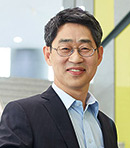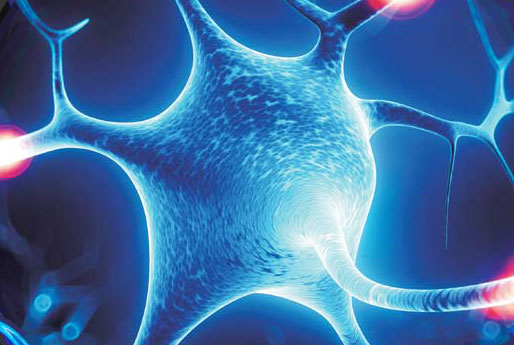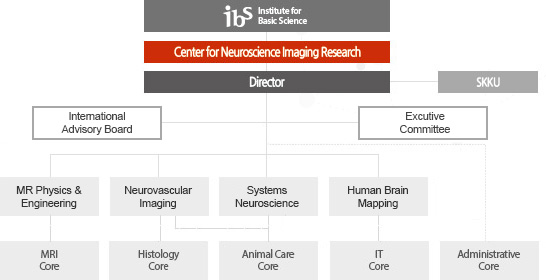주메뉴
- About IBS 연구원소개
-
Research Centers
연구단소개
- Research Outcomes
- Mathematics
- Physics
- Center for Theoretical Physics of the Universe(Particle Theory and Cosmology Group)
- Center for Theoretical Physics of the Universe(Cosmology, Gravity and Astroparticle Physics Group)
- Center for Exotic Nuclear Studies
- Center for Artificial Low Dimensional Electronic Systems
- Center for Underground Physics
- Center for Axion and Precision Physics Research
- Center for Theoretical Physics of Complex Systems
- Center for Quantum Nanoscience
- Center for Van der Waals Quantum Solids
- Chemistry
- Life Sciences
- Earth Science
- Interdisciplinary
- Institutes
- Korea Virus Research Institute
- News Center 뉴스 센터
- Career 인재초빙
- Living in Korea IBS School-UST
- IBS School 윤리경영


주메뉴
- About IBS
-
Research Centers
- Research Outcomes
- Mathematics
- Physics
- Center for Theoretical Physics of the Universe(Particle Theory and Cosmology Group)
- Center for Theoretical Physics of the Universe(Cosmology, Gravity and Astroparticle Physics Group)
- Center for Exotic Nuclear Studies
- Center for Artificial Low Dimensional Electronic Systems
- Center for Underground Physics
- Center for Axion and Precision Physics Research
- Center for Theoretical Physics of Complex Systems
- Center for Quantum Nanoscience
- Center for Van der Waals Quantum Solids
- Chemistry
- Life Sciences
- Earth Science
- Interdisciplinary
- Institutes
- Korea Virus Research Institute
- News Center
- Career
- Living in Korea
- IBS School
Research Centers
- Research Outcomes
- Mathematics
- Physics
- Center for Theoretical Physics of the Universe(Particle Theory and Cosmology Group)
- Center for Theoretical Physics of the Universe(Cosmology, Gravity and Astroparticle Physics Group)
- Center for Exotic Nuclear Studies
- Center for Artificial Low Dimensional Electronic Systems
- Center for Underground Physics
- Center for Axion and Precision Physics Research
- Center for Theoretical Physics of Complex Systems
- Center for Quantum Nanoscience
- Center for Van der Waals Quantum Solids
- Chemistry
- Life Sciences
- Earth Science
- Interdisciplinary
- Institutes
- Korea Virus Research Institute
Advancing systems neuroscience with neuroimaging
Tel. +82-31-299-4351
Fax +82-31-299-4506
IBS Center for Neuroscience Imaging Research
#86364, N Center, Sungkyunkwan University, Seobu-ro 2066, Jangan-gu, Suwon, Korea
Director

Director KIM Seong-Gi
Professor Kim is the director of the Center for Neuroscience Imaging Research, established in July 2013. He earned his Ph.D. in Physical Chemistry from Washington University in 1988. He became a professor at the University of Pittsburgh where he was later appointed to the Paul C. Lauterbur Chair in Imaging Research. He returned to Korea in 2013 and was appointed a professor at SKKU and a director of the Center for Neuroscience Imaging Research.
Introduction

Producing basic brain science knowledge for research of physiological mechanisms and functions of human and animal brains
- - Investigating various neuroimaging at the molecular, cellular and tissue level by utilizing fMRI technology
- - Investigating neuroimaging of human and animal systems for research of their physiological mechanisms
Main research activities
Welcome to IBS Center for Neuroscience Imaging Research (CNIR)!
As you all know, understanding brain structures, function, networks and behaviors is one of sciences last and most daunting challenges. Since the brain has the order of one hundred billion cells, all of which are highly organized into structure and inter-connected for efficient communication, it is extremely difficult and tedious to determine the relationship between structure and function and to investigate the neural circuits of behaviors and underlying physiology in humans and animals. To accelerate the progress of brain research, the CNIR relies on high-tech neuroimaging tools such as magnetic resonance imaging, multi-photon microscope, and electrode arrays to investigate the entire brain or large brain area.
The CNIR consists of multiple inter-related research groups for the integration of experimental approaches from a diversity of disciplines; i) the Physics, Chemistry and Engineering group, which will develop novel methods and materials for brain research, ii) the Computation and Data Analysis group, which will determine signal processing and computation approaches to handle large amount of brain data, and iii) the Neurobiology and Cognitive Neuroscience groups, which will investigate behaviors and diseases in normal and dysfunctional rodents, monkeys and humans.
The CNIR will be housed in a new, approximately 3,000 square meter, three-story building in early 2015. It will have core facilities including animal and human MRI, two-photon microscope, super high-resolution confocal microscope, computer clusters, electronic and machine shop, histology lab, and rodent and non-human primate animal housing. The major emphasis is to create an open research environment and to encourage synergetic, multi-modal, multi-disciplinary, creative neuroscience research. The CNIR is interested in collaborative research with investigators around the world.
When you have time, please visit our center at Sungkyunkwan University in Korean Silicon Valley, Suwon.
Organization

Main research results
- Signal, Noise, and Variation in Neural and Sensory-Motor Latency
(Neuron, 2016) - Layer-Specific fMRI Responses to Excitatory and Inhibitory Neuronal Activities in the Olfactory Bulb
(Journal of Neuroscience, 2015) - dNP2 is a blood?brain barrier-permeable peptide enabling ctCTLA-4 protein delivery to ameliorate experimental autoimmune encephalomyelitis
(Nature Communications, 2015) - Neural and hemodynamic responses to optogenetic and sensory stimulation in the rat somatosensory cortex
(Journal of Cerebral Blood Flow and Metabolism, 2015) - Ultrasensitive mechanical crack-based sensor inspired by the spider sensory system
(Nature, 2014)
Personnel
| Total | 120 |
|---|---|
| Gender | 73(Male), 47(Female) |
| Korean/ International | 115(Korean), 5(International) |
Degree
Position
As of March. 2017












